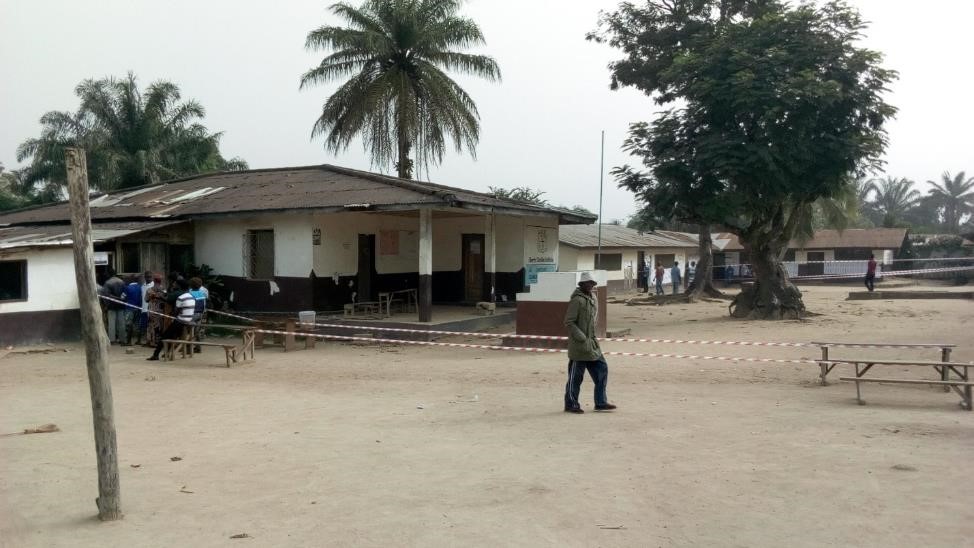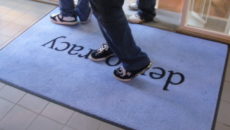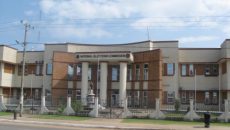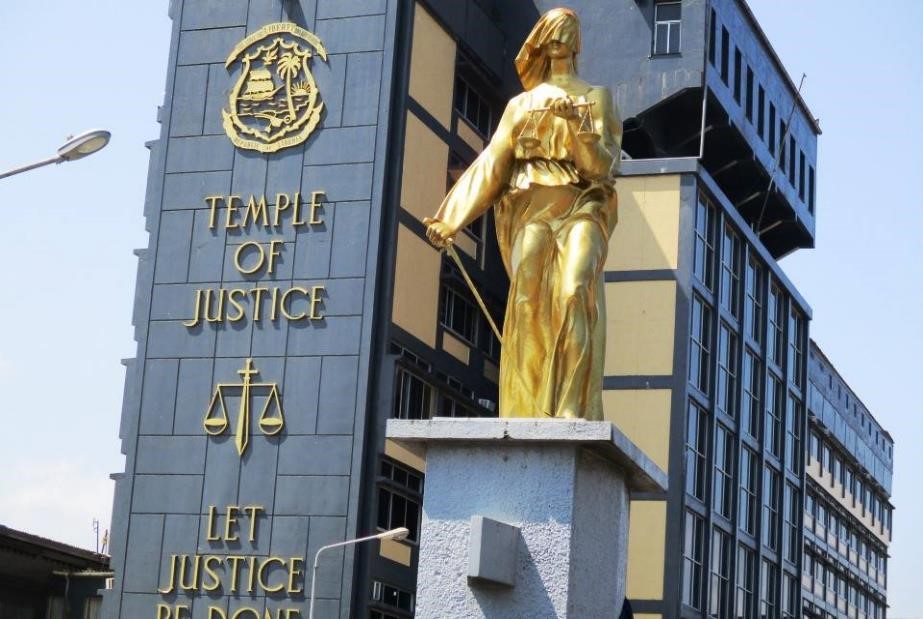GANTA, Nimba – Liberians are now casting their ballots in different parts of the country in a runoff election between football legend George Weah of the Coalition for Democratic Change and the incumbent Vice President Joseph Boakai of the ruling Unity Party.
The runoff election was previously scheduled for November 7 but was rescheduled for today, December 26, due to legal challenges by Liberty Party, which alleged that the process was marred by fraud.
Voting commenced at the scheduled 8:00 a.m. across the country and will last until 6:00 p.m. In Nimba’s first electoral district, voters are said to be poorly responding to the voting process.

A voter casts her ballot at the Liberty Christian Institute, as observers watch the process. Photo: Arrington Ballah
Poll workers were all posted on time, compared to the October 10 election where some precincts opened after 10 a.m. This time, National Elections Commission staff were awaiting voters to come in and cast their ballots.
At the Liberty Christian Institute in the Deakehmein Community, one of the five polling places which had the highest number of registered voters had 15 persons in the queue to cast their vote. The four other polling places had no lines and voters could simply cast their votes without waiting.
“This is not good, I think the radio stations need to help us tell the people to come and vote,†a polling staff was overheard saying. “The radio stations need to make announcement and tell the people to come to vote.â€
Similarly, the Massiah Christian Center, the Geolanda Community School, and the Josephine Diogar Primary School are experiencing poor turnouts. Some polling staff, however, were optimistic that they would receive an increase in a flow of voters during the afternoon hours.
“Yesterday was Christmas, so people are still resting,†one polling staff at the Josephine Diogar Primary School precinct said. “We are very sure that during the afternoon time, they will come up to do their voting – we [are] sure.â€
It is not clear how the turnout for the elections will be, given that voting is only halfway through. Meanwhile, the prevalent chatter at the polling stations is that voters who were brought into areas other than where they live to vote in the first round would not be voting in the runoff because they lacked the finances to transport themselves again.
Featured photo by Arrington Ballah



